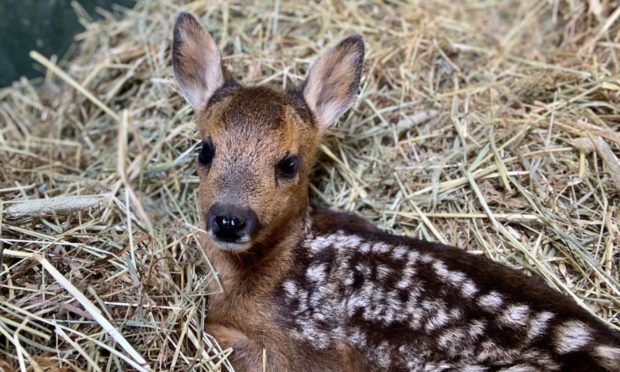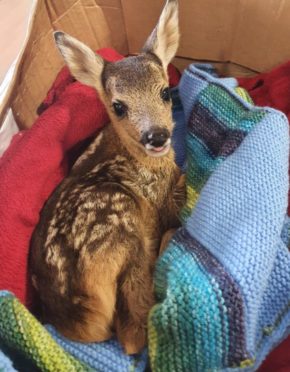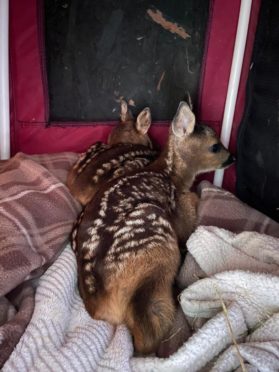The Scottish SPCA has launched a campaign to stop wild animals becoming orphans unnecessarily after a stressed fawn had to be put to sleep.
A number of fawns have been been taken into care by the charity recently after being mistaken as abandoned.
Between May 18 and 23, four fawns were admitted to the National Wildlife Rescue Centre from Inverurie, Carnoustie, Deskford and Saline. Three of the fawns were taken from their natural environment.
One of the young deer showed signs of severe stress and sadly had to be put to sleep on medical grounds.
Removing fawn can cause ‘great distress’
Steve Gray, wildlife manager at the National Wildlife Rescue Centre, said: “We know that people have the best intentions but removing wild animals from their natural habitat can do more harm than good.
“Deer suffer from such extreme stress levels, more so than many other wild animals, that in some cases it can be life-threatening.
“By removing a fawn when there is no need to, it can cause great distress to mother and baby.
“In many cases, a fawn will not run away if approached, especially if mum has returned and fed them as they will be feeling sleepy. People can mistake this as a sign a fawn needs help when it does not.”
Follow Scottish SPCA advice
The #WildlifeWise campaign aims to educate the public on when they should call the SSPCA for help.
Mr Gray continued: “We’ve had instances where people have phoned our animal helpline about a fawn and have chosen to ignore our advice and uplifted the animal anyway. Under no circumstances should people take a fawn in to their home.
“These are wild animals and their inherent instinct is to flee from humans. These are not domesticated or tame animals who are used to human interaction so trying to pet or comfort them only causes more stress.
“Sadly, this increased stress has caused fawns and deer who have been brought in to our care to die.
“It’s not just fawns that suffer from being removed from the wild. A mother returning to find her young missing can suffer severe stress.”
Keep families together
The charity is asking people to be #WildlifeWise and ensures they will help the fawns which do need medical assistance. Most of the time mothers will return to their fawns to feed them after foraging for food or finding a new nesting site.
Mr Gray continued: “Our dedicated teams work incredibly hard to rehabilitate these fawns and get them ready to be released back in to the wild.
“This usually involves regular bottle feeding all through the night. As incredible as our wildlife team is, there is no substitute for an animal staying with its family in the wild.
“If you come across a fawn, please stay well back and do not alert it to your presence. Monitor the fawn over several hours.”
The SPCA are reminding people to keep dogs on leads around wild animals and to only intervene if the fawn is injured or the mother is deceased nearby.
The aim is to keep wild families together so it is important to only contact the SSPCA if they are needed.


